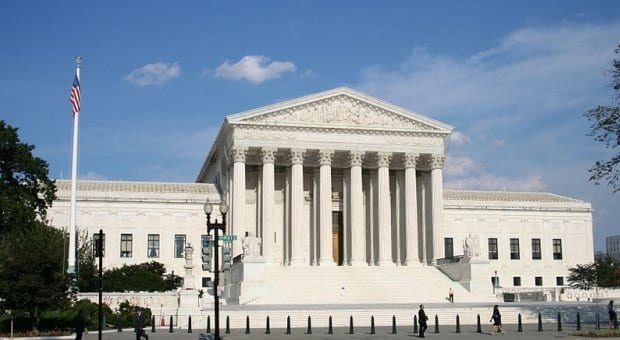Same-sex married couples across the United States are sorting out their personal finances following last month’s historic rulings affecting gay marriage.
The Supreme Court of the United States on June 26 struck down the Defense of Marriage Act (DOMA) and California’s Proposition 8.
Many gay couples now face a “disorienting legal hangover as they try to assess the ruling’s effect on their personal finances,” writes Lyndsay Wise, a reporter with McClatchy news service’s Washington bureau.
“Now that the court has ruled, the confusion hinges on whether government agencies will use a ‘place of celebration’ or a ‘state of residence’ rule to determine which federal protections, programs and responsibilities apply to same-sex couples,” Wise reports.
She says it’s unclear how the court rulings will affect the more than 1,100 federal laws tied to marital status. Some effects were detailed last month in the Time magazine article “How the DOMA Ruling Will Affect Gay Couples.”
The New York Times‘ editorial board was more pointed, noting a net result of the rulings “emphasize the lingering inequality for millions of gay and lesbian Americans.”
In the July 14 editorial “The Future of Same-Sex Marriage,” The Times states that the ruling on Proposition 8 has perpetuated “a mean and irrational patchwork in which duly wed couples may not be considered married when they cross state borders.”
“By disposing of the California case on narrow procedural grounds, the Supreme Court avoided the necessary reckoning about the fundamental violation of equal protection created by state laws that prohibit same-sex couples from marrying.”
Meanwhile, the Supreme Court of California on July 15 rejected a request for an immediate halt to same-sex marriages made by the sponsors of Proposition 8. The one-sentence ruling signals there is little chance the sponsors will be able to resurrect the state’s voter-approved ban on gay marriage.


 Why you can trust Xtra
Why you can trust Xtra


